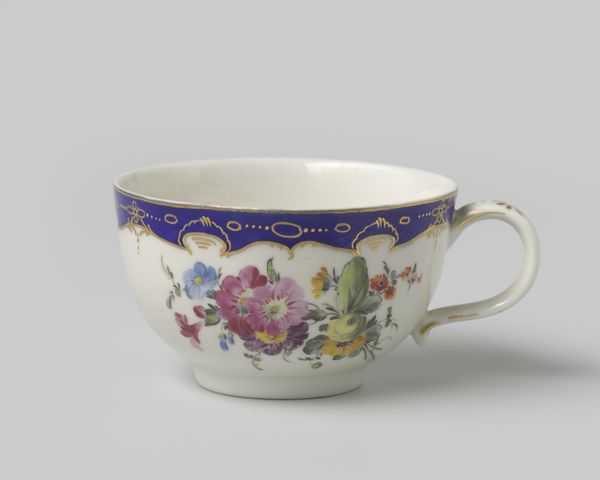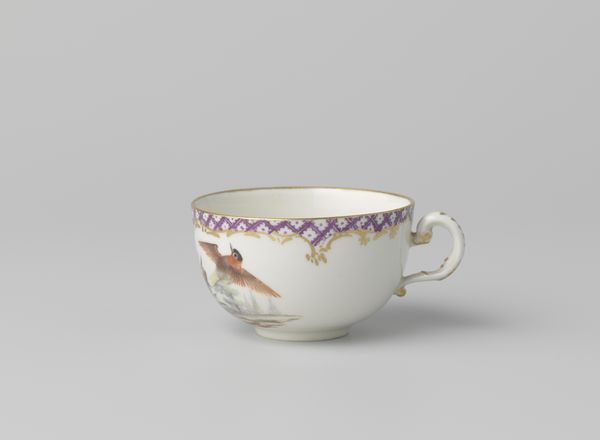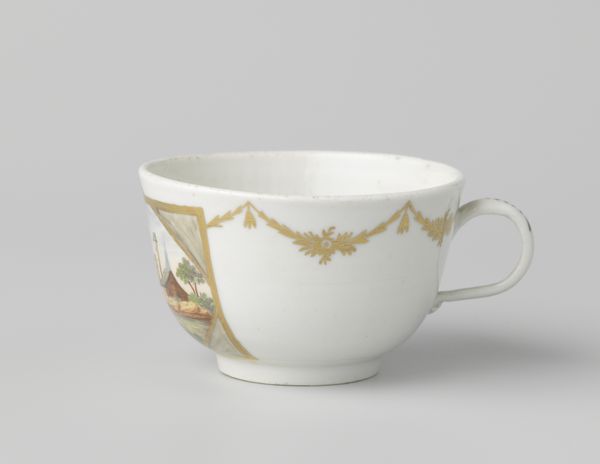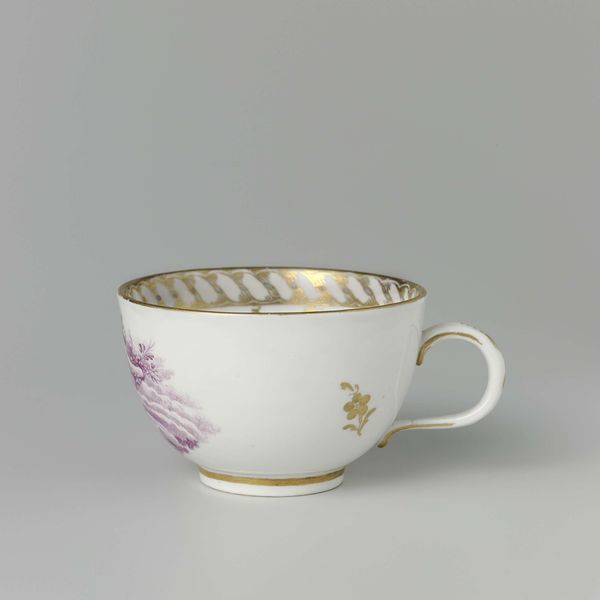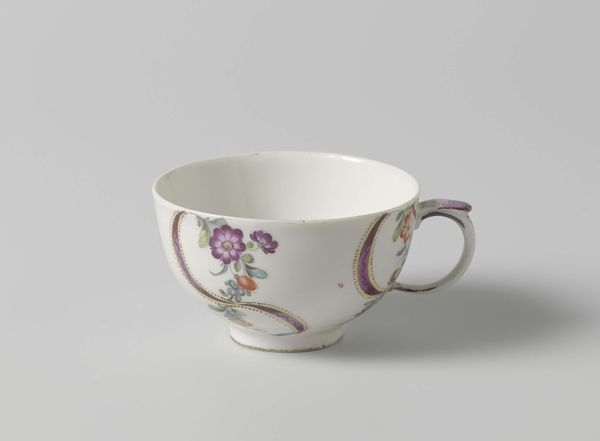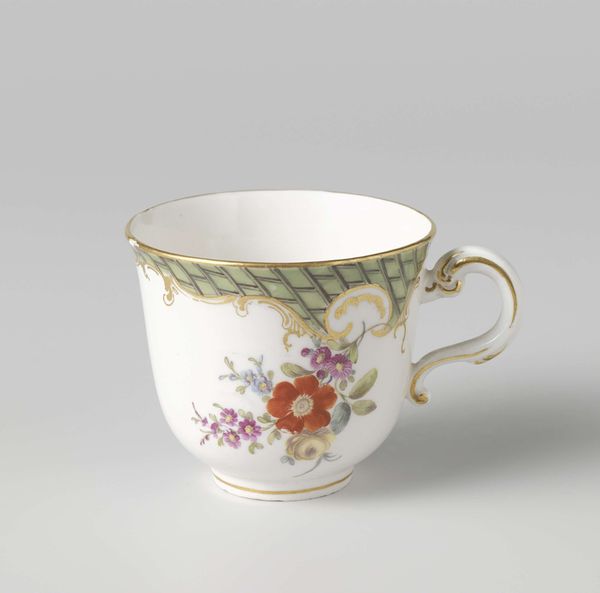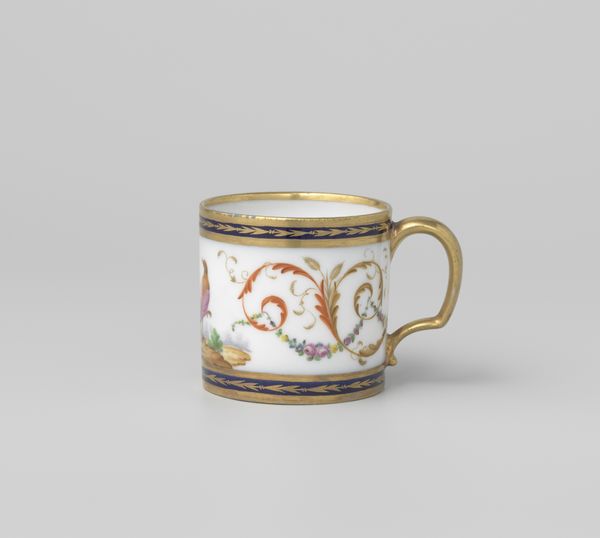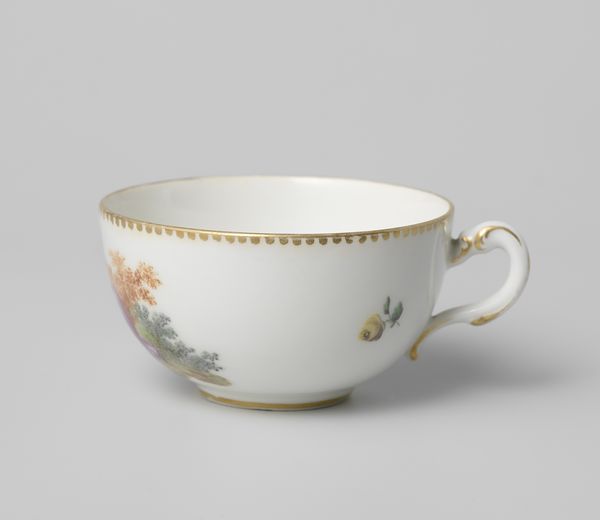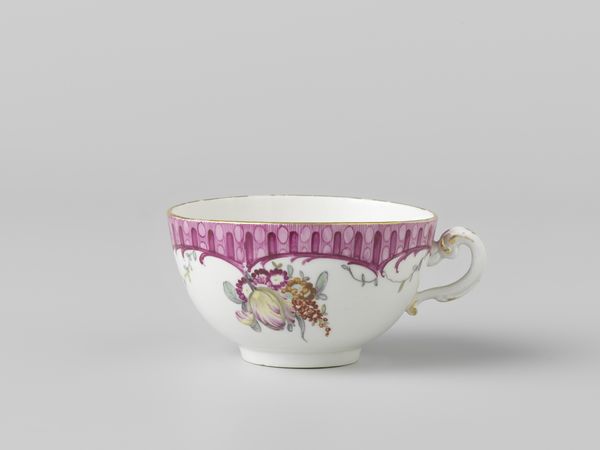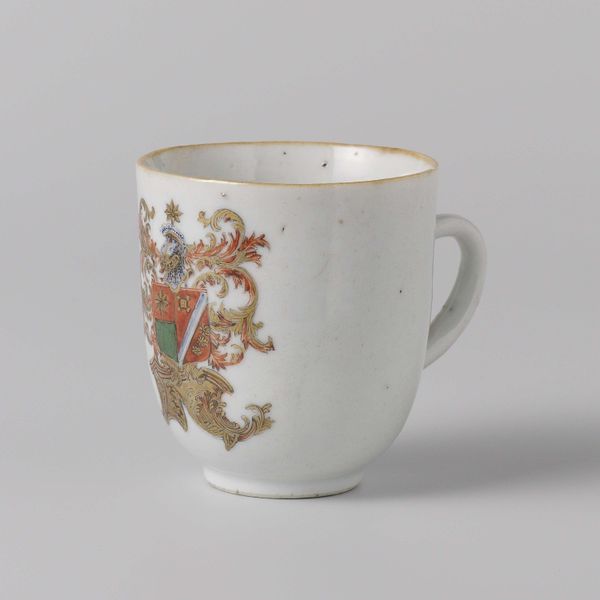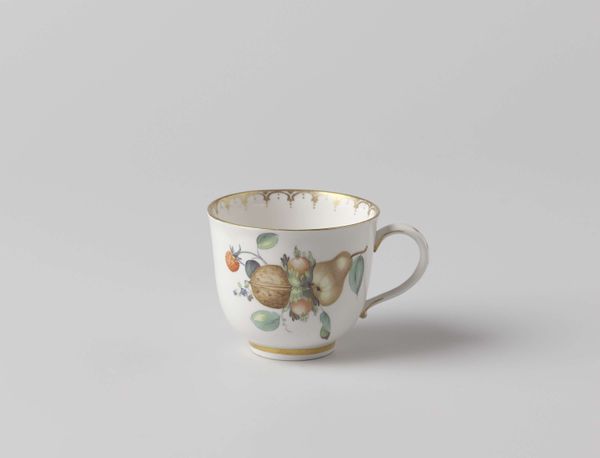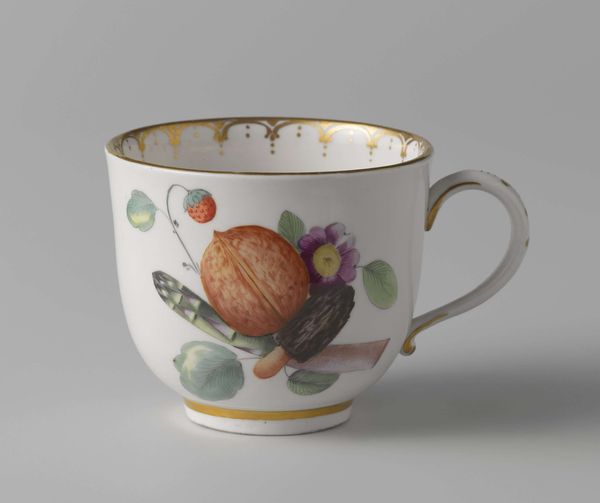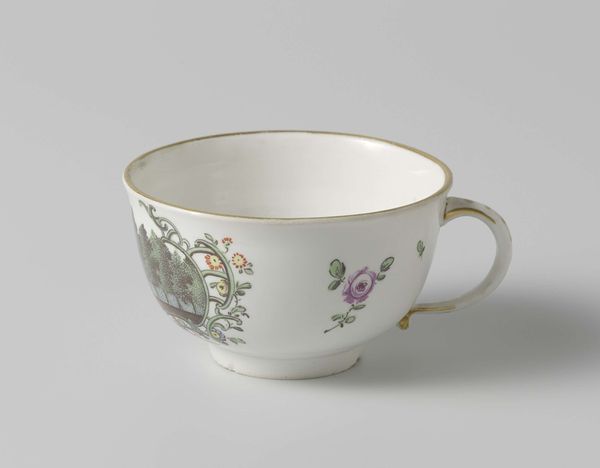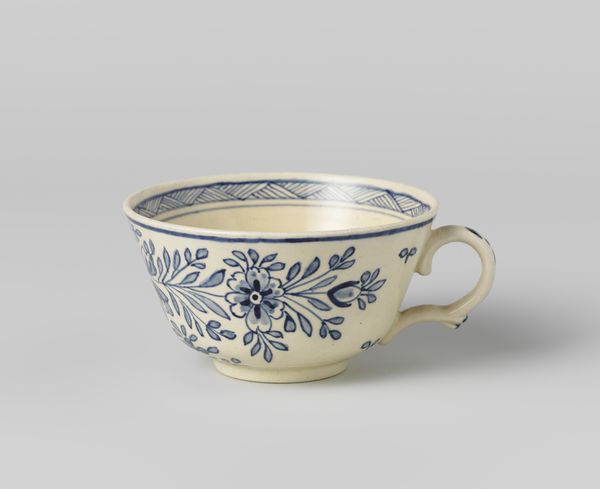
Dimensions: height 4.8 cm, diameter 7.7 cm
Copyright: Rijks Museum: Open Domain
This cup and saucer was produced by the Porseleinfabriek Den Haag. The painted decoration on porcelain tableware such as this was a luxury product, produced by a factory in The Hague. We can assume it would have been available only to a wealthy clientele. The Rococo-style floral swag at the top of the cup indicates the high social status of its owner. But it's the image of the turkeys that is most striking. Turkeys were brought to Europe from the Americas in the 16th century. Because of their exotic origins, they quickly became popular as ornamental birds. They were kept in parks and gardens to demonstrate the wealth and sophistication of their owners. Here, the painter has depicted the turkey to associate its owner with those same qualities of wealth and sophistication. In order to better understand the economic implications of the commercial production of porcelain, or the cultural significance of the image of a turkey, a social historian might turn to sources such as archival records and trade statistics to understand the culture that shaped the artwork.
